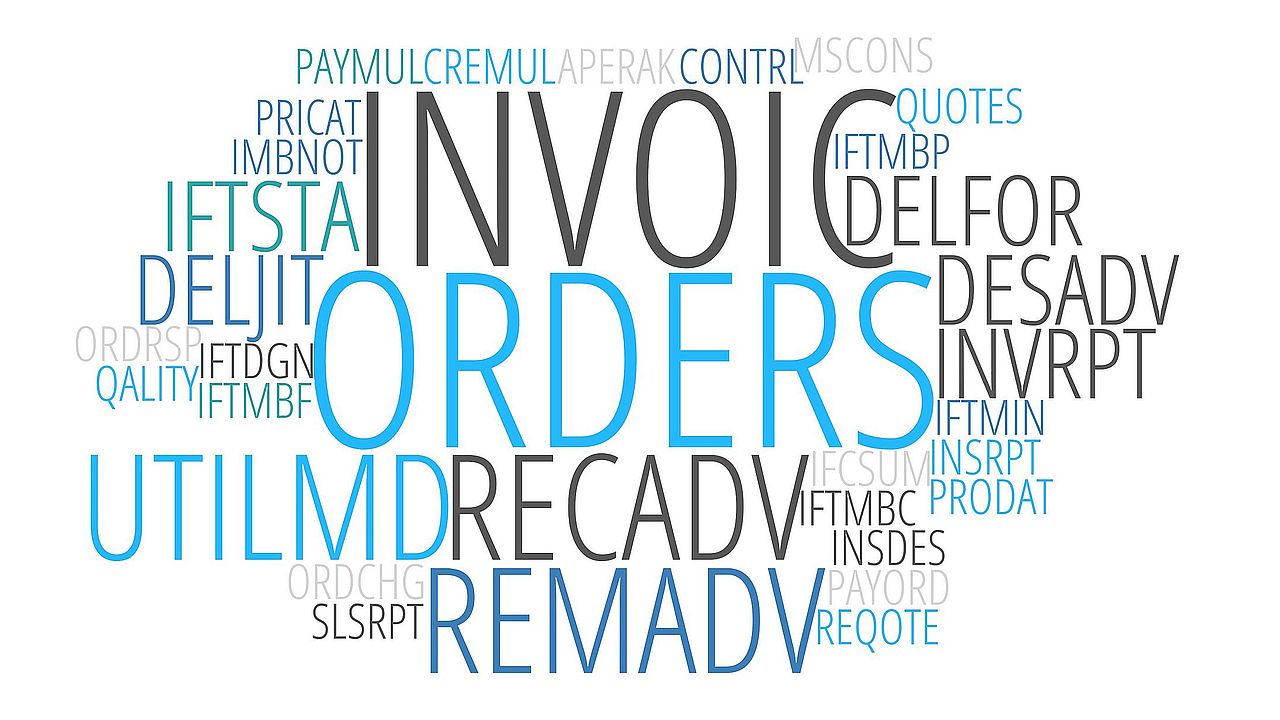Basics of EDIFACT
In this course you will learn about the principles and structure of EDI standards in one day using the example of UN/EDIFACT (United Nations Electronic Data Interchange for Administration, Commerce and Transport).
UN/EDIFACT is an EDI standard that describes business documents in a standardized format and thus defines uniform formats. These formats enable the automated exchange of orders, invoices or delivery bills between the computer systems of companies and, increasingly, public authorities. UN/EDIFACT is developed and maintained by international experts, is industry-independent and is widely used. There are also other EDI standards that are based on UN/EDIFACT and are commonly used in certain industries, such as GS1 EANCOM® as the standard for the consumer goods industry.
This course will give you an overview of the importance, application, advantages and disadvantages of EDI standards. Practical exercises will help you to better understand the structure of the standard.
Training topics of “Introduction to the EDI standard UN/EDIFACT”
- Why UN/EDIFACT?
- Introduction to the EDIFACT syntax
- The hierarchical levels of the standard
- Structure and attributes of the standard
- Conversion of an order into an EDIFACT-ORDERS
- Exercises
Any questions about the training course and/or input on other training topics?
What will you learn in the course?
You will have learned about the structure of an EDIFACT message through a practical exercise, making it easier for you to understand other EDI messages. You will also have learned about the advantages and disadvantages of EDI standards and know which other EDI standards are based on EDIFACT.
Who should attend?
Attend this course if you are a member of an EDI project group, an IT or EDI department, or if you work as an EDI and eBusiness consultant and basic EDIFACT knowledge is an important part of your work.
What should you already know?
General knowledge of data structures is recommended.
How much time will the training take?
Please plan a whole day for the training.
When will the training take place?
14 May 2025, 9 am to 12 am and 2 pm to 5 pm

